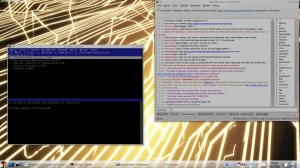Age: 16
Location:Lubin, Poland
IRC Nick:Quintasan or Quintasan|Szel
How long have you used Linux and what was your first distro?
How long? Kind of hard to remember, maybe three years. My first distro was Ubuntu then very soon I switched to Kubuntu and after few months I found myself using Gentoo but I discovered it was a waste of time and I switched back to Kubuntu.
How long have you been using Ubuntu?
I would say I have been using Kubuntu for two years. I was curious how Linux works and after googling and visiting some sites I though Ubuntu would be a good choice but I didn’t like GNOME and Kubuntu was obvious choice for me back then.
When did you get involved with the MOTU team and how?
At first I used to translate apps but serious contributions started somewhere in the Jaunty cycle. My first “contribution” was importing upstream patch to fix issues with Qt 4.5 and KDE 4.1
What helped you learn packaging and how Ubuntu teams work?
Packaging? I have learned it The Hard Way, instead of reading the awesome wiki we have I started meddling with debian/ dir and poked guys on IRC each time when some Strange Error popped out ![]() . Guys on #kubuntu-devel and #ubuntu-motu were very helpful and I managed to grasp the basics of packaging, patching and whole review process within two hours.
. Guys on #kubuntu-devel and #ubuntu-motu were very helpful and I managed to grasp the basics of packaging, patching and whole review process within two hours.
What’s your favorite part of working with the MOTU?
Everything ![]() . But if I had to choose just one thing it would be when I users drop in to IRC channel and thank developers for their hard work (+100 to motivation
. But if I had to choose just one thing it would be when I users drop in to IRC channel and thank developers for their hard work (+100 to motivation ![]() .
.
Any advice for people wanting to help out MOTU?
Don’t be shy, join us on #ubuntu-motu and ask how you can help. We don’t bite and can provide you with assistance if you run into problems on your MOTU adventure ![]()
Are you involved with any local Linux/Ubuntu groups?
Ubuntu Polish LoCo, you can find me on our IRC channel (#ubuntu-pl)
What are you going to focus on in Lucid?
Of course working with Kubuntu Ninjas (sssh we don’t actually exist ![]() ) to bring you new and shiny KDE SC releases. I’m the new maintainer of Project Neon (nightly builds of KDE SC and Amarok) so I will also concentrate on that. I’d also like to tidy needs-packaging list a bit so we have a clear list on thing we really need to have in repositories.
) to bring you new and shiny KDE SC releases. I’m the new maintainer of Project Neon (nightly builds of KDE SC and Amarok) so I will also concentrate on that. I’d also like to tidy needs-packaging list a bit so we have a clear list on thing we really need to have in repositories.
What do you do in your other spare time?
So, I learn Japanese by myself since there are no courses here in Lubin or somewhere nearby. I also love skateboarding and watching anime. I’ve recently started learning C++ so I do it very often too.
[Discuss Micha? Zaj?c on the Forum]
Originally posted by Daniel Holbach here on December 18, 2009 at 2:05 pm


